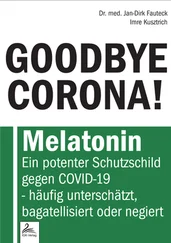When will he lose all decency and come slip into bed with her?
The next morning, he gets to work at eight thirty, although he doesn’t begin until an hour later. He walks right into Marcel’s office. Elias wants to get the editor-in-chief to take him back as a reporter, on the grounds that he’s been unjustly set aside because of fake news. He demands to be reinstated without delay, and this, before they learn Olga is in police custody. As she starts at 3:00 p.m. on Sundays, Elias hopes to create an irreversible situation if he can succeed before they realize his darling is absent and, in fact, being held by the cops. But Marcel already knows about it and says to him coldly, “Let’s wait till Olga is released, OK? Did you get a lawyer to defend her?”
Elias stalks out of the office, slamming the door in disgust, and goes back to his workstation in production. At each limp handshake from a colleague, he feels still more abandoned. Only Danielle Godmiche gives him an effusive hug. He goes into a corner and calls Diabolo. “We’re on our way,” the fat man announces. “Jérémie’s going to bring your honey back to you. Don’t get all worked up!” That’s what’s great about hoods. They don’t spare themselves, they don’t judge or prejudge, they’re always ready to give you the air you need to breathe, the ten cents change to make a round number. Tel Aviv to Mitzpe Ramon in a Cinquecento—even if it’s customized and air-conditioned, that’s really something when you’re not obliged to do it! But Diabo doesn’t have to be from nobility to have noble feelings. His ugly excess weight doesn’t prevent him from being an aristo of the heart.
Waiting for Jérémie to come out of the court with Olga, he remains calmly in the car, puffing on a Cohiba while listening to the complete songs of Michel Sardou.
“Your honor, we arrested Miss Olga Picard here in possession of a large sum of money, which she justified by claiming it was a gift from the NGO Tag Shalom for the Khaldun family,” the police officer in charge of the case begins before the impassive magistrate in Mitzpe Ramon. “We also found the defendant was lying about her personal relationship to Elias Benzaquen, who is involved in a criminal case against two members of the Khaldun family.”
The cop’s goal is to obtain an extension of the pretrial detention to have the time to show the connection between this money and the case of the two Bedouins, but especially the personal relationship between Olga and Elias. So he talks about factors that tend to prove there is an “attempt to suborn witnesses”—so he’s already into big words—and his presentation does not neglect a single detail of the affair, while Olga listens attentively to the simultaneous translation as she sits in the defendant’s place to the left of the judge. She has on the same clothes as the day before, the same makeup, and nonetheless the same freshness despite twenty-four hours in detention without being able to wash or even brush her teeth. She’s a gem, that girl: grace incarnate in the clutches of the law. Jérémie was able to talk with her five minutes before the hearing, and he found her really top notch but also extremely detached, strangely distant, almost as if she were reporting in the court and not suspected of serious crimes. Not personally involved, you might say: a journalist to the core, not a criminal facing trial. He asked two or three questions about the circumstances of her arrest, and she answered precisely, although she seemed more interested in the little love note Elias had given him for her than in his strategy as a lawyer. A love letter in which her lover asks her forgiveness for letting her go on that wretched expedition and promises that when she gets back, they’ll both go to Venice for a few days to forget all this.
When the cop has finished, the lawyer stands up to address the judge. “Your honor,” Jérémie declares, “my client has committed neither a crime nor a misdemeanor, there is no Israeli law making it illegal to transport the sum of money she is accused of transporting. So we don’t understand what the officer is getting at. Keeping her in detention brings nothing to the investigation, because every part of the case is already known. Moreover, Olga is ready to confront the generous donor who gave her this money, but the police did not wish to disturb that gentleman. Besides, my client has all the guarantees necessary for her to be released: no record, a salary, and a stable job. Therefore, I am asking the court to reject the police’s request.”
But the judge refuses to release Olga. She grants the police three supplementary days in detention, and the hearing is adjourned.
Jérémie joins Diabolo in the Cinquecento, and they leave empty handed for Tel Aviv. Diabolo is disappointed, but Jérémie really takes it badly. He could see himself already, swaggering around, freeing the beautiful captive in two shakes of a lamb’s tail, and dining with her that same evening at the Cantina or the Brasserie on Ibn Gabirol.
“Now I can stick my finger up my ass!”
“She’s Elias’s chick, you don’t have a chance. Even I can’t…” Diabolo begins.
“Even you what?” retorts Jérémie, annoyed.
“You know very well no woman can resist me… hey, speak of the devil.”
“The news isn’t very good,” Diabolo says. “They’re holding her three more days. But take it easy, the cops don’t have a thing on her, and Jérémie fought like a lion. You should’ve seen him. They were trembling in the corridors, I tell you. That is, there are no corridors in Mitzpe Ramon, it’s just an image, but man, he’s got the gift of the gab, I swear.”
“I’m gonna die!” Elias howls.
“We’ll get her Thursday.”
“I’m gonna die!”
“Not before Thursday, please,” Diabolo says.
“Tell him I’m going to sue Kirzenbaum for slander,” Jérémie whispers.
“Hear that, Elias? Jérémie’s going to fuck Kiki with a slan—”
But Elias has already hung up and didn’t hear the joke. Olga’s scheme didn’t improve the situation, only made it worse: despite the publication of the fake, she’s still in jail, and he’s still more marginalized at H24, whereas Kirzenbaum can take it easy as he does his blog. It really makes you believe in predestination, in fatum as the ancients called it, in misfortune already written up above. For even an act of love like Olga’s to have such perverse, devastating effects, you have to believe you’re cursed.
He makes blunders all morning; his mind isn’t in it. He distractedly works his console without thinking of what he’s doing: close-ups that last a whole minute during a discussion, the camera focused on a participant who’s listening while picking his nose while the speaker isn’t even in the frame. Marcel finally charges into the production room to see what’s going on.
“You’re totally going off the rails, Elias.”
“A forger accuses me, and you take his side! Olga’s in the slammer, and you don’t even ask the embassy to intervene! Just what are you waiting for? For us to kiss our ass goodbye, her and me? You want us dead? Is that it?” Elias retorts, aware he’s risking everything.
For this could turn out badly; he might actually be thrown out after making a scene like this, it’s possible. But it’s also a good way of shaking up his colleagues, forcing people to take sides. Elias knows how to create divisions.
Danielle Godmiche finally says, “After all, we can’t let them publish bullshit about Elias without reacting, Marcel. His honor is also the honor of the channel.”
“Our lawyer is on it,” Marcel protests.
“Yes, but meanwhile, Elias is being punished on the basis of a fake, and that’s not right,” someone else says.
Читать дальше












